- Home
- Joel Goldman
Final judgment lm-5 Page 7
Final judgment lm-5 Read online
Page 7
Samuelson leaned back in his chair, confident in the support from his boss.
“We will tell the police the identity of the victim. However, we do have some flexibility regarding when and what else we tell them because of an ongoing investigation being conducted by our office and the FBI. That’s where Mr. Fish comes in. We’d like his help. If he agrees, we’ll tell you what we know.”
“You’ll have to tell us what this other investigation is about and what you expect my client to do,” Mason said.
Samuelson shook his head. “I can’t do that without an agreement in advance that we have a deal. It’s too sensitive.”
“And if he refuses to sign on for a secret mission too secret to tell us what it’s about up front, you’ll let him be prosecuted for a crime you know he didn’t commit? Do you really think you can get away with that?”
“Let’s be clear about a couple of things,” Samuelson said. “We may know who the murder victim is, but we don’t know whether Mr. Fish is innocent or guilty. We won’t interfere with that investigation and we won’t set up your client to take the fall for a crime he didn’t commit. The murder is the state’s problem. Our concerns are at the federal level.”
“Mr. Holmes promised that you would treat me fairly and justly,” Fish said. “So you’ll tell the police the name of the dead man, who, by the way, I didn’t kill. When the police find out who the man was, they’ll realize I had nothing to do with it. So why should I be interested in your investigation?”
“There’s very little we can tell the police without compromising our investigation and we aren’t prepared to do that. But what we can tell them won’t be helpful to you,” Samuelson said.
Mason came out of his chair and leaned over the table. “How do you think this will play after I hold a press conference about your strong-arm tactics?”
Kelly stood, planting her palms on the table, squaring off against Mason and letting him know that the past was past. “Take your seat, Lou.”
Samuelson said, “I’d take her advice, Mason. Nothing you could tell the press will change Mr. Fish’s problems. He will be charged with murder and he will be convicted of mail fraud. Now mail fraud may not sound as bad as murder, but I guarantee it won’t help him with the jury in the murder case.”
Fish reached for Mason’s arm, tugging on his sleeve and gesturing for Mason to speak to him privately. Mason leaned toward Fish.
“The name,” Fish whispered in his ear. “Just get the name.”
Mason nodded, took his seat, and waited for Kelly to stand down. “You can turn the screws all you want, but at least you’ve got to give us the name. We’ve got to have something to go on besides faith in your compassion for my client. If we can do business, we will. If not, we’ll take our chances.”
Kelly gave Samuelson a look. “Your call,” she told Samuelson, who nodded at her. “Fair enough,” Kelly said. “Charles Rockley was the man in the trunk of Mr. Fish’s car.”
NINETEEN
Cheating spouses deny infidelity with facile deceit. Con men nimbly tap-dance around implausibility. Criminals beat lie detector tests with steady breathing and beta blockers that control the involuntary tremors of a lie. Their survival depends on practiced deception. They are ready when the gun sounds and the games begin.
Mason was good, but not that good. Vanessa Carter had knocked him off track. Kelly Holt had resuscitated dormant memories he thought he had discarded. He hadn’t expected either woman to leap from his past into his present, though he managed to keep his game face on.
But writing Charles Rockley’s name on the toe tag for the corpse in Fish’s trunk took his breath away. It was like finding his pants down around his ankles in front of a disappointed audience. Certain that his eyes were bugging out as if he had a runaway thyroid, he wished for a sudden palsy that would subdue the quivering muscles in his face. Mason barely heard Fish say he didn’t know anyone by that name.
Kelly pulled a photograph from her file, sliding it across the table to Fish. “Do you know this man?”
It was a grainy color photo taken during the day in front of an apartment building. The man was tall and broad, his features well known to Mason though he was a stranger to Fish. Blues was the man in the picture.
The photograph shook Mason out of his stupor. “Where did you get this?” he asked before Fish could answer.
“That’s not important,” Kelly said.
“The hell it’s not!”
He quickly saw the alignment of the planets. The FBI had Rockley’s apartment under surveillance. Kelly recognized Blues in the photograph. She knew that Mason represented Fish and that Blues did Mason’s investigative legwork. Once the FBI identified Rockley’s body, she assumed that Mason had sent Blues to Rockley’s apartment because he knew that Rockley was the murder victim, something he could have learned only from Fish. The last piece was easy. Fish knew because he had killed Rockley.
It was obvious, logical, and wrong, but Mason couldn’t tell them why. If the FBI gave the photograph to the cops, school was out. Fish would be indicted. Blues would be subpoenaed and forced to testify. Blues could tell the truth and exonerate Fish. Or he could lie and save Mason.
Kelly looked at Mason, her eyes flickering with regret, though Mason knew her sympathies were misplaced. She turned toward Samuelson, a silent gesture telling Mason that it was out of her hands.
“We’ll let you talk privately,” Samuelson said. “When you’re ready, call my secretary at extension two-two-one.”
Fish waited until they left before picking up the photograph, pointing it at Mason. “You know this man?”
Mason took a deep breath, got up, and walked to the windows, leaning against the glass. For a moment, he wondered if he could push hard enough to force the glass from the frame. He already felt like he was falling.
“I’ll get you another lawyer.”
Fish swiveled in his chair toward Mason. “Why do I need another lawyer? Who is this man?”
Mason looked at Fish, hands in his pockets. “It’s complicated.”
“What’s so complicated? You know this man and you don’t want to tell me who he is or how you know him. Tell me and we’ll see how complicated it is.”
The practice of law was about lines. Some of them were bright. Some of them were blurred. Either way, lawyers made their living on the margins. Mason shook his head, unable to squeeze more room from the tangled lines wrapped around him. His problems with Vanessa Carter and Charles Rockley created the mother of all conflicts of interest for his representation of Avery Fish.
He couldn’t represent Fish any longer, but he couldn’t tell Fish why or anything else that might come back to haunt him. As much as he liked Fish, he had to assume that Fish would ultimately do what every other defendant in a tight spot does. Make a trade. Mason didn’t want to end up as the player to be named later. Still, he knew that Fish would eventually learn that Blues was the man in the photograph.
“His name is Wilson Bluestone, Jr. People call him Blues. He’s a friend of mine.”
Fish shrugged. “This friend of yours, did he kill Rockley?”
“No.”
“Then why does the FBI have his picture and why do I need a new lawyer?”
“The picture was taken outside Rockley’s apartment building. The FBI must have had Rockley under surveillance. Why, I don’t know. You need a new lawyer because that photograph means I have a conflict of interest that prevents me from continuing to represent you.”
Fish hauled himself from his chair, his face reddening with the effort. “So you’ve got another client you’d rather represent than me?”
Mason looked at Fish, surprised at the hurt in his eyes. “Believe me. If there was any way I could, I’d much rather represent you.”
Fish took Mason by the arm. It was a comforting grip, as if Fish realized that Mason was caught between things worse than conflicting clients.
“Don’t quit on me so easily. I need you. Tell Mr. Samuelson
we’ll get back to him next week.”
“I don’t know. I don’t think there’s a way around this.”
Fish patted Mason on the cheek. “There’s always a way. Our people haven’t survived for over five thousand years by giving up. You think about it. Call Samuelson. Tell him to have a nice weekend.”
Mason left word with Samuelson’s secretary that they were leaving and that he didn’t need to talk with her boss. When she insisted on transferring his call to Samuelson, he assured her that wasn’t necessary. He and Fish were standing at the elevator when Kelly Holt caught up to them.
“Lou,” she said, arms folded across her chest. “We need to talk.”
Mason gave her a faint smile. “Next week. I’ll call you.”
“Now,” she said, leaving no room for negotiation.
The elevator arrived. Fish stepped in and turned around toward Mason. “Talk to her. What could it hurt? I’ll wait for you downstairs,” he said as the elevator door closed.
TWENTY
“Okay, I’m listening,” Mason said.
“Your client needs to take this deal,” she said.
“Deal? What deal? Help out with some mysterious investigation that’s too top secret to tell us about? Give me a break.”
“It’s important and your client is in deep trouble.”
Wearing slacks and a waist-cut jacket over a blouse, Kelly could have passed for anyone from a soccer mom to an executive on casual day. The giveaway was in her eyes and jaw, where there was no give. He studied her, remembering their past. She was tough then, letting her guard down a little but not enough that he could say he ever really knew her. Her wall was up again and their past was forgotten. Mason waited as one of the elevators opened again and several people got out, brushing past them.
“It’s always important when the government wants to trade lives,” he said. “My client needs more time to think it over.”
“There isn’t a lot of time. What can I tell you to make it easier for him to decide?”
“Other than the details on what you want him to do?”
“Other than that.”
“Okay. Why did the FBI have Rockley under surveillance?”
“We didn’t.”
“C’mon, Kelly,” Mason snapped. “We both know that Blues is the guy in that photograph and that’s how you tied Fish to Rockley.”
“That doesn’t mean we had Rockley under surveillance.” Mason cocked his head, surprised at her insistence. Then he remembered Blues telling him that someone else had been snooping around Rockley’s apartment, talking to neighbors, without identifying himself. The FBI always left business cards.
“So where did you get the picture?”
It was Kelly’s turn to hesitate. She glanced around to make certain no one else was within earshot.
“It was attached to an e-mail we intercepted.”
“It’s hard to get a warrant to intercept e-mail. It’s even harder to get a warrant to hack into someone’s computer and search their stored e-mails. This must be some big case you’re working on.”
“The Patriot Act makes it a lot easier.”
“Are you telling me that Rockley was mixed up with terrorists?”
“The Patriot Act isn’t limited to terrorists.”
Mason knew she was right. The Justice Department had taken advantage of its new powers in a wide range of cases that had nothing to do with terrorism. The ACLU and criminal defense bar had complained, but no one had heard them. The Bill of Rights was eroding against the tide of better safe than sorry.
“So if Rockley wasn’t a terrorist, who was he?”
“A murder victim,” Kelly said.
“Who just happens to pop up in an overnight DNA search? I don’t think so. You have any idea how long it takes me to get DNA results in a criminal case? Months. Every criminal defendant in America wants his DNA tested. There aren’t enough labs to run all the tests and nobody gets results, even preliminary results, overnight.”
“We’re the FBI. We don’t have to wait.”
“I don’t buy that. I don’t think you tested the murder victim’s DNA sample, ran it through the Bureau’s database, and just got a lucky match, all in less than twenty-four hours. The only way you could have gotten the results that fast is if you knew who you were looking for. I think you tested the sample against Rockley’s DNA because you already had his on file and you suspected he was the murder victim. So who the hell was Rockley?”
Kelly shook her head. “You haven’t changed a bit. Still too smart for your own good. Just don’t wait until it’s too late to make up your mind.”
TWENTY-ONE
Mason told Fish about his conversation with Kelly as they drove through downtown. People walking to lunch clutched their hats and scarves against a chill wind that whipped along at street level, channeled by office towers reaching for the high arched ceiling of thick clouds overhead. Fish listened without asking questions or offering any comments. The rest of the drive was a quiet one.
“It’s not about me. It’s about you,” Fish said when Mason pulled up in front of Fish’s house.
“What’s that supposed to mean?”
“That photograph. The one with your friend in it that means I need a new lawyer. That FBI agent-what was her name?”
“Kelly Holt.”
“She was showing that picture to you, not to me.”
“What makes you say that?”
“The two of you, there’s some history there. I can tell by the way you looked at her. Am I right?”
Mason hesitated. “Yeah, we were involved in a case five years ago.”
“So you were involved. Does she know this friend of yours, Mr. Blues?”
“She does.”
“Then it doesn’t matter if I know who he is since you already do. She wanted to see your reaction.”
“I wasn’t exactly cool.”
“You nearly plotz ed. Some poker player you are.”
“Maybe she wanted to see if you would lie about knowing Blues.”
“Why would I tell a lie that could be so easily exposed?” Fish asked.
“Crooks tell bad lies all the time.”
“Not me. It’s bad for business.”
Mason looked at Fish. The old man had been grinding away at Mason’s problem, considering it the way a con man would. What’s the angle? What doesn’t fit? Where’s the hook?
“You still need a new lawyer,” Mason told him.
“What will the government think if you quit?”
Mason shrugged. “That you didn’t pay me.”
“If that was the case, you would have already quit. What else?”
“That we disagreed over the deal they offered. You wanted to take it and I wouldn’t go along. Or maybe that you were going to perjure yourself on the witness stand.”
“I don’t think so. No. Your FBI agent, Miss Holt, she will think you quit because of the picture of your friend, Mr. Blues. She will think you know too much about Rockley to be my lawyer. That’s why this is all about you, not me.”
Fish was analyzing his case like the con man he was. That didn’t mean Fish was wrong, but it meant Mason had to understand Fish’s approach.
“What makes a good con?” Mason asked.
“Two things. The con man has to have better information than the mark and the mark has to want to believe the con.”
“That’s why this is about you and not me. Blues used to be a cop. He helps me with some of my cases. Kelly Holt knows that. She thinks you knew that Rockley was the murder victim because you killed him. You told me, and I told Blues and sent him to Rockley’s apartment. It’s what she wants to believe. If she shows that photograph to the cops, they’ll agree with her. She’s wrong, but I can’t tell her why.”
“So you think she’s trying to con both of us so that I’ll take this cockamamie deal they’ve offered.”
“That’s the best I can come up with.”
“And Kelly Holt wants to believe I ki
lled Rockley, but you’re the one with the better information.”
“That’s me.”
“And you won’t tell me what it is. So who’s conning whom?” Fish asked.
Mason looked at Fish, realizing that there was something else that made a good con. The mark had to trust the con man like a penitent trusts a priest. Mason fought the temptation to trust Fish. He was torn between wanting to tell him and worrying that he’d already told him too much.
“I’m sorry.”
“Sorry is for losers. And you’re no loser. Come for dinner on Sunday. Six o’clock. We’ll talk some more.”
“There’s nothing more I can tell you.”
Fish climbed out of the car, holding on to the door as he leaned back in. “Trust me, we’ll find something to talk about, eh, boytchik.”
Mason spent the rest of the afternoon looking for the path of least resistance to the truth about Charles Rockley. He was certain of one thing. The story laid out in Rockley’s employment records didn’t jibe with someone whose DNA was at the top of the FBI’s unidentified murder victims pile. The FBI’s DNA database was for convicted felons and suspected terrorists, not middle managers. Mason shifted his focus to proving that Rockley’s resume was phony.
He pulled up Rockley’s application for employment at the Galaxy Casino on his computer. It listed the names, addresses, and phone numbers of five prior employers.
He picked up the phone and started dialing, betting that the companies were either out of business or had never heard of Charles Rockley. An hour later he was done. All five were still open for business. All five confirmed that Rockley had worked for them, just as Rockley had written on his application to Galaxy. All five gave him glowing references and said they had been sorry to see him go but had understood that he had to take a better job.
It didn’t make sense, but that didn’t matter. No con artist, not even the FBI, could get five different companies in five different states to lie about a former employee.

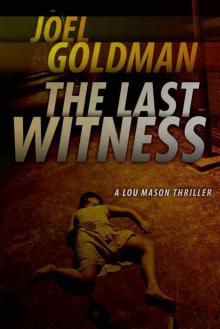 The last witness lm-2
The last witness lm-2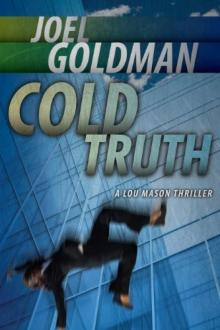 Cold Truth
Cold Truth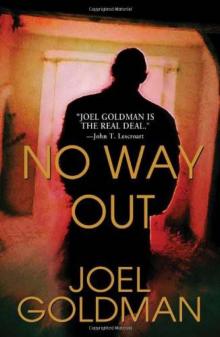 No Way Out (2010)
No Way Out (2010)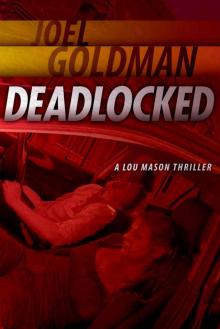 Deadlocked (Lou Mason Thrillers)
Deadlocked (Lou Mason Thrillers)![[Lou Mason 01.0] Motion to Kill Read online](http://i1.bookreadfree.com/i1/03/24/lou_mason_01_0_motion_to_kill_preview.jpg) [Lou Mason 01.0] Motion to Kill
[Lou Mason 01.0] Motion to Kill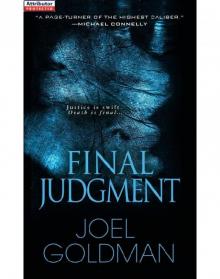 Final Judgment
Final Judgment Stone Cold
Stone Cold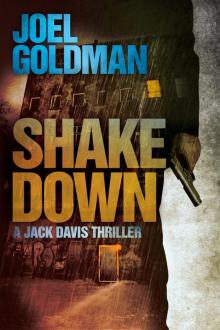 Shakedown
Shakedown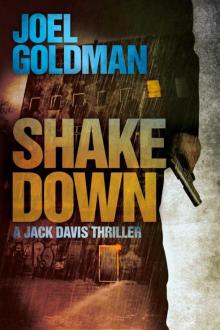 Shakedown jd-1
Shakedown jd-1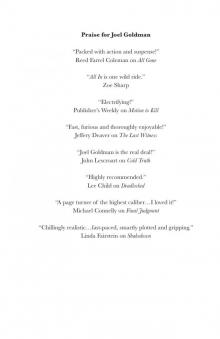 All Gone
All Gone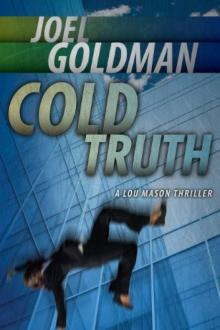 Cold truth lm-3
Cold truth lm-3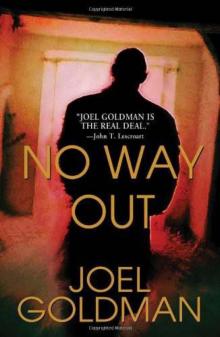 No way out jd-2
No way out jd-2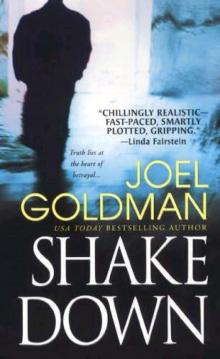 Jack Davis Mystery - 01 - Shakedown
Jack Davis Mystery - 01 - Shakedown Stone Cold as-1
Stone Cold as-1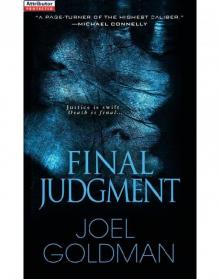 Final judgment lm-5
Final judgment lm-5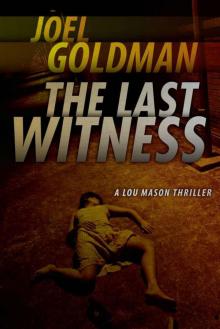 Lou Mason Mystery - 02 - The Last Witness
Lou Mason Mystery - 02 - The Last Witness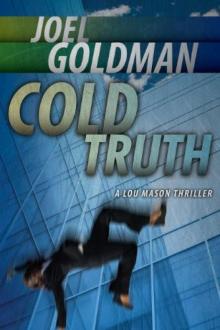 Lou Mason Mystery 03-Cold Truth
Lou Mason Mystery 03-Cold Truth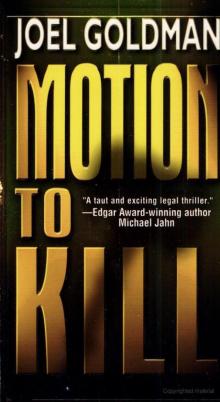 Motion to Kill
Motion to Kill Die, Lover, Die!
Die, Lover, Die!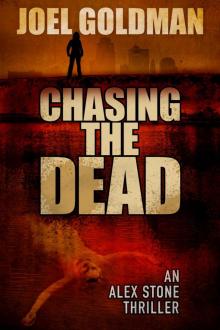 Chasing The Dead (An Alex Stone Thriller)
Chasing The Dead (An Alex Stone Thriller)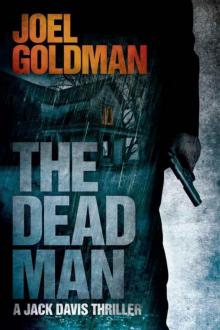 The Dead Man
The Dead Man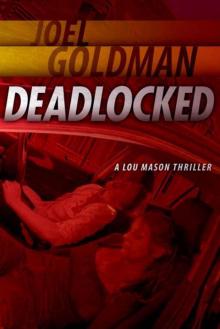 Deadlocked lm-4
Deadlocked lm-4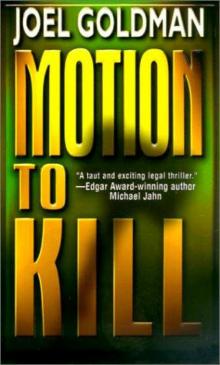 Lou Mason Mystery - 01 - Motion to Kill
Lou Mason Mystery - 01 - Motion to Kill Die, lover, die
Die, lover, die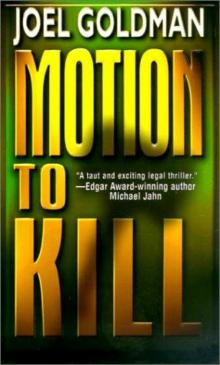 Motion to Kill lm-1
Motion to Kill lm-1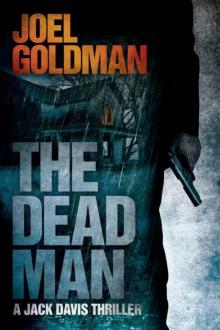 The Dead Man jd-3
The Dead Man jd-3